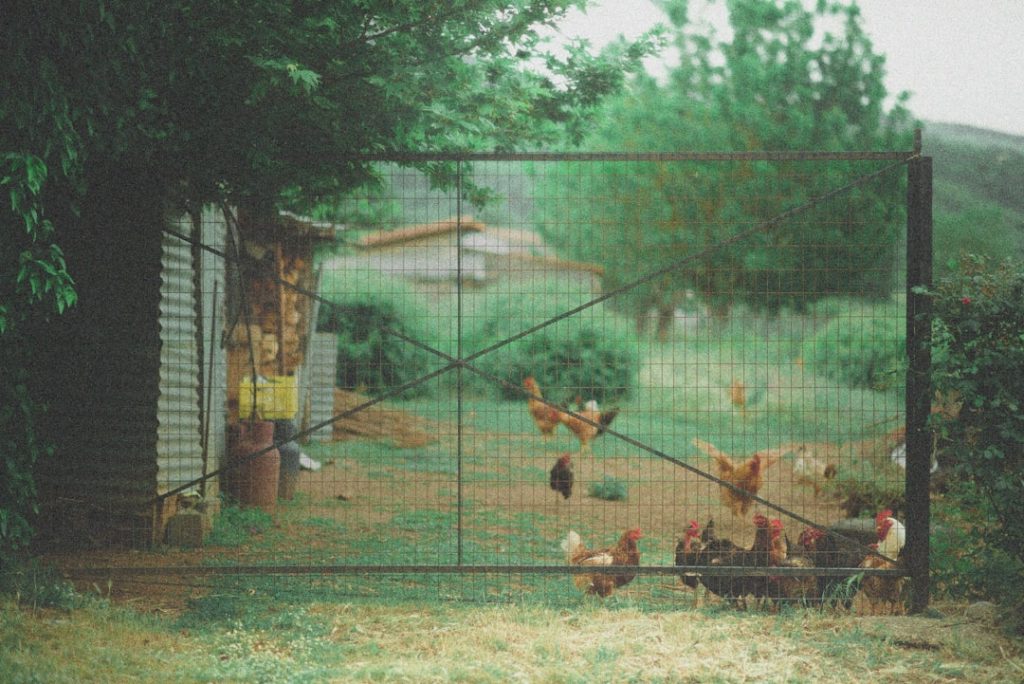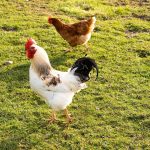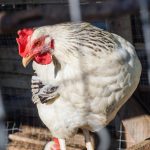Hope Valley is a rural community located in a hilly countryside area. The region is characterized by green pastures and open skies, providing a peaceful environment for residents. The community is known for its strong social connections and agricultural heritage, with many inhabitants engaging in sustainable living practices.
The area’s fertile soil and natural resources make it suitable for various agricultural activities, including chicken farming. Many residents of Hope Valley keep chickens for fresh egg production and as a way to connect with traditional farming practices. Community support is a significant aspect of life in Hope Valley, with residents often sharing knowledge and resources related to chicken keeping and other agricultural pursuits.
The landscape of rolling hills and open spaces provides suitable conditions for free-range chicken farming, allowing the birds to forage naturally. Hope Valley’s combination of agricultural tradition, community spirit, and suitable terrain makes it an attractive location for those interested in small-scale poultry farming or seeking a rural lifestyle.
Table of Contents
- 1 Benefits of Keeping Chickens
- 2 Choosing the Right Breed of Chicken
- 3 Setting Up a Chicken Coop in Hope Valley
- 4 Caring for Chickens in Hope Valley
- 5 Harvesting and Using Fresh Eggs
- 6 Community Resources and Support for Chicken Owners in Hope Valley
- 7 FAQs
- 7.1 What is Hope Valley?
- 7.2 Why do people keep chickens in Hope Valley?
- 7.3 What are the regulations for keeping chickens in Hope Valley?
- 7.4 What are the benefits of keeping chickens in Hope Valley?
- 7.5 What are some challenges of keeping chickens in Hope Valley?
- 7.6 What are some popular chicken breeds for keeping in Hope Valley?
Key Takeaways
- Hope Valley is a picturesque community with a growing interest in backyard chicken keeping.
- Keeping chickens in Hope Valley provides numerous benefits, including fresh eggs, natural pest control, and fertilizer for gardens.
- When choosing the right breed of chicken for Hope Valley, consider factors such as climate, egg production, and temperament.
- Setting up a chicken coop in Hope Valley requires careful planning to ensure the safety and comfort of the chickens.
- Caring for chickens in Hope Valley involves providing proper nutrition, protection from predators, and regular health checks.
Benefits of Keeping Chickens
Fresh and Nutritious Eggs
One of the most obvious benefits is the production of fresh, organic eggs. Unlike store-bought eggs, which may have been sitting on shelves for weeks, eggs from backyard chickens are incredibly fresh and packed with nutrients. They are also free from harmful chemicals and antibiotics, making them a healthier choice for consumers.
Sustainable Gardening and Pest Control
In addition to eggs, chickens also provide a source of natural fertilizer for gardens and crops, helping to enrich the soil and promote healthy plant growth. Moreover, chickens are natural pest controllers, helping to keep insect populations in check and reducing the need for chemical pesticides.
Reducing Food Waste and Environmental Impact
Another benefit of keeping chickens in Hope Valley is the opportunity to reduce food waste. Chickens are excellent at converting kitchen scraps and leftovers into nutritious eggs, making them an eco-friendly addition to any household. By feeding chickens food scraps that would otherwise end up in the trash, residents can minimize their environmental impact and contribute to a more sustainable way of living.
Choosing the Right Breed of Chicken
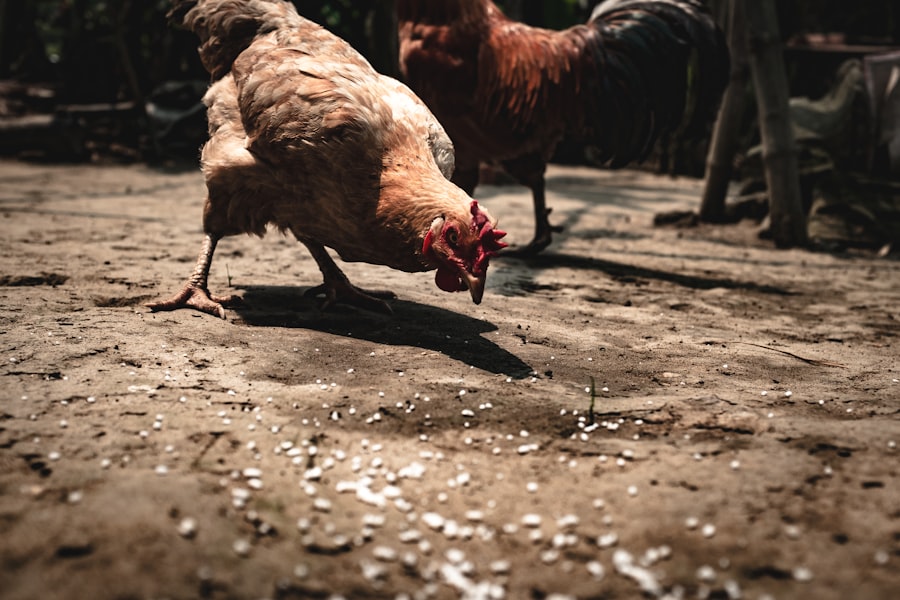
When it comes to choosing the right breed of chicken for your backyard flock in Hope Valley, there are several factors to consider. Different breeds have different characteristics and requirements, so it’s important to select a breed that aligns with your specific needs and preferences. For example, if you’re primarily interested in egg production, you may want to consider breeds known for their high egg-laying capabilities, such as the Rhode Island Red or Leghorn.
On the other hand, if you’re looking for chickens that are friendly and docile, breeds like the Orpington or Silkie may be more suitable. Climate is another important factor to consider when choosing a breed of chicken for Hope Valley. The area experiences four distinct seasons, so it’s essential to select a breed that can tolerate both hot summers and cold winters.
Some breeds, such as the Plymouth Rock or Wyandotte, are known for their hardiness and ability to thrive in a variety of climates, making them well-suited for the changing weather patterns of Hope Valley. Additionally, it’s important to consider the space available for your flock and any local regulations regarding chicken keeping. By taking these factors into account, you can choose a breed of chicken that will thrive in the unique environment of Hope Valley.
Setting Up a Chicken Coop in Hope Valley
Setting up a chicken coop in Hope Valley is an essential step in creating a safe and comfortable environment for your flock. The first consideration when building a coop is the size and layout of the structure. The coop should provide ample space for your chickens to roost, nest, and move around freely.
It should also be well-ventilated to ensure good air circulation and prevent moisture buildup. In addition to the coop itself, it’s important to include an outdoor run where your chickens can exercise and forage for insects and plants. Another important aspect of setting up a chicken coop in Hope Valley is predator protection.
The area is home to a variety of wildlife, including foxes, raccoons, and birds of prey, all of which pose a threat to backyard chickens. To protect your flock from predators, it’s essential to secure the coop with sturdy fencing and hardware cloth. Additionally, consider installing motion-activated lights or alarms to deter nocturnal predators.
By taking these precautions, you can create a safe and secure environment for your chickens to thrive in Hope Valley.
Caring for Chickens in Hope Valley
Caring for chickens in Hope Valley requires dedication, knowledge, and a genuine love for these feathered friends. One of the most important aspects of chicken care is providing a balanced diet that meets their nutritional needs. Chickens require a diet rich in protein, vitamins, and minerals to support egg production and overall health.
In addition to commercial feed, it’s important to supplement their diet with fresh fruits and vegetables, as well as access to grit for digestion. Another crucial aspect of caring for chickens in Hope Valley is ensuring their health and well-being. Regular health checks are essential to monitor for signs of illness or injury.
It’s also important to keep the coop clean and free from droppings and debris to prevent the spread of disease. Additionally, providing access to fresh water at all times is vital for keeping chickens hydrated and healthy. By staying attentive to their needs and providing proper care, residents of Hope Valley can ensure that their chickens lead happy and healthy lives.
Harvesting and Using Fresh Eggs
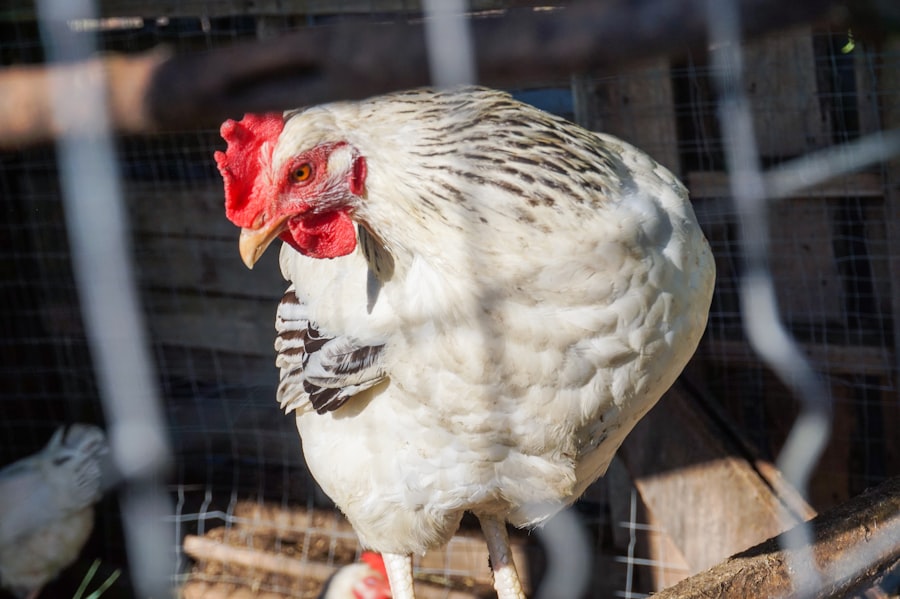
The Benefits of Fresh Eggs
Harvesting fresh eggs from your backyard flock in Hope Valley is one rewarding aspect of keeping chickens. Unlike store-bought eggs, which may have been sitting on shelves for weeks, fresh eggs from your own chickens are incredibly flavorful and nutritious.
Handling and Storing Fresh Eggs
To ensure the highest quality eggs, it’s important to collect them regularly and handle them with care. Store eggs in a cool place away from direct sunlight to maintain their freshness.
Culinary and Beyond: Uses for Fresh Eggs
Once you’ve harvested your fresh eggs, there are countless ways to enjoy them in your daily cooking. From fluffy omelets and creamy scrambled eggs to decadent quiches and rich custards, fresh eggs add a delicious touch to any dish. Their vibrant yolks and firm whites make them ideal for baking as well, adding richness and structure to cakes, cookies, and pastries. In addition to their culinary uses, fresh eggs can also be used as natural beauty treatments or fertilizers for plants.
Community Resources and Support for Chicken Owners in Hope Valley
In Hope Valley, there are numerous community resources and support networks available for chicken owners. From local agricultural organizations to online forums and social media groups, residents have access to a wealth of information and assistance when it comes to raising chickens. These resources provide valuable guidance on topics such as breed selection, coop construction, health care, and egg production.
They also offer opportunities for networking with other chicken owners in the area, allowing residents to share experiences, tips, and advice. In addition to online resources, there are also local businesses and suppliers in Hope Valley that cater to the needs of chicken owners. From feed stores and hatcheries to equipment suppliers and veterinary services, residents have access to everything they need to care for their flock.
These local businesses often provide personalized service and expertise tailored to the unique needs of the community. Overall, the abundance of community resources and support available in Hope Valley makes it an ideal place for anyone interested in embarking on the rewarding journey of raising chickens. In conclusion, Hope Valley provides an idyllic setting for keeping chickens, with its rich agricultural heritage, strong sense of community, and abundant natural resources.
Residents have access to a wide range of benefits from raising chickens, including fresh eggs, natural fertilizer, pest control, and reduced food waste. By choosing the right breed of chicken and setting up a secure coop, residents can create a safe and comfortable environment for their flock. Caring for chickens requires dedication and knowledge but offers numerous rewards in return.
Harvesting fresh eggs from backyard chickens adds a delicious touch to daily cooking while also providing valuable resources for household use. With an array of community resources and support available, residents of Hope Valley have everything they need to embark on a successful journey as chicken owners.
If you’re considering keeping chickens in Hope Valley, you may want to check out this article on A-Frame Chicken Coops for some helpful tips on building a suitable coop for your feathered friends. A well-designed coop is essential for the health and safety of your chickens, and this article provides valuable information on creating a comfortable and secure living space for them.
FAQs
What is Hope Valley?
Hope Valley is a small community located in the state of Rhode Island, known for its picturesque landscapes and rural charm.
Why do people keep chickens in Hope Valley?
Many people in Hope Valley keep chickens for various reasons, including having a sustainable source of fresh eggs, as pets, for pest control, and for their fertilizer.
What are the regulations for keeping chickens in Hope Valley?
The regulations for keeping chickens in Hope Valley may vary, but generally, there are guidelines regarding the number of chickens allowed, coop requirements, and distance from neighboring properties.
What are the benefits of keeping chickens in Hope Valley?
Some benefits of keeping chickens in Hope Valley include having a sustainable source of fresh eggs, natural pest control in the garden, and the opportunity to teach children about responsibility and animal care.
What are some challenges of keeping chickens in Hope Valley?
Challenges of keeping chickens in Hope Valley may include predator protection, maintaining cleanliness in the coop, and ensuring proper nutrition and healthcare for the chickens.
What are some popular chicken breeds for keeping in Hope Valley?
Popular chicken breeds for keeping in Hope Valley include Rhode Island Reds, Plymouth Rocks, and Ameraucanas, known for their egg-laying abilities and hardiness in various climates.
Meet Walter, the feathered-friend fanatic of Florida! Nestled in the sunshine state, Walter struts through life with his feathered companions, clucking his way to happiness. With a coop that’s fancier than a five-star hotel, he’s the Don Juan of the chicken world. When he’s not teaching his hens to do the cha-cha, you’ll find him in a heated debate with his prized rooster, Sir Clucks-a-Lot. Walter’s poultry passion is no yolk; he’s the sunny-side-up guy you never knew you needed in your flock of friends!

